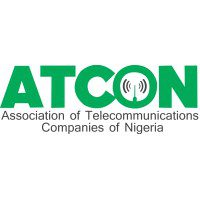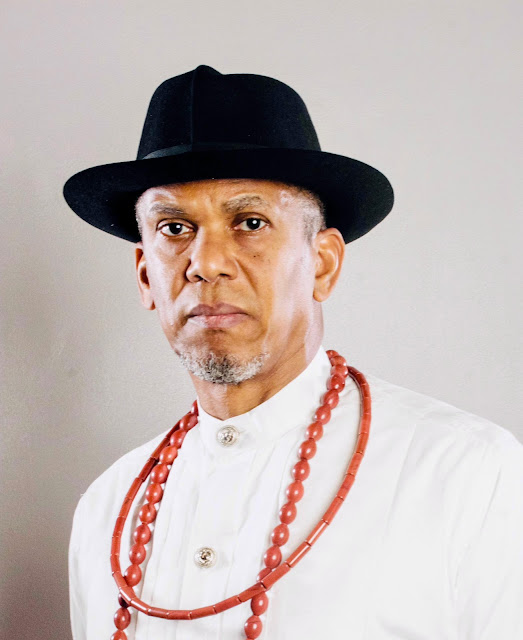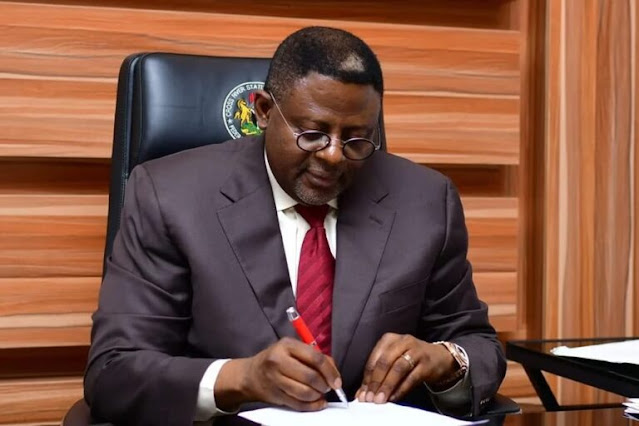In a significant endorsement of Nigeria’s push toward a more connected and digitally inclusive future, the Association of Telecommunication Companies of Nigeria (ATCON) has commended the Federal Ministry of Communication, Innovation and Digital Economy (FMCIDE) for spearheading an ambitious new infrastructure initiative dubbed “Project Bridge.” The announcement was made by ATCON President Tony Emoekpere during an interview with journalists in Lagos on Monday, August 25, 2025. The initiative, a bold Public-Private Partnership (PPP), aims to establish a robust and resilient telecommunications backbone across Nigeria by deploying an extensive network of fibre optic cables linking all 36 states, the Federal Capital Territory (FCT), and local government areas. This transformative project is poised to address longstanding connectivity challenges, enhance digital inclusion, and drive economic growth by ensuring reliable and widespread access to telecommunications services.
Project Bridge, described as a complementary measure to strengthen Nigeria’s existing telecommunications infrastructure, represents a critical step toward achieving the goals outlined in the country’s National Broadband Plan. With an estimated cost of $2 billion and a target of deploying 90,000 kilometers of fibre optic cables, the initiative is designed to create a redundant and resilient network that ensures uninterrupted connectivity, even in the face of infrastructure failures. By fostering collaboration between the public and private sectors, Project Bridge underscores Nigeria’s commitment to leveraging technology to bridge the digital divide, particularly in underserved rural areas, and to position the country as a leader in Africa’s digital economy.
A Vision for a Connected Nigeria
During his interview, Tony Emoekpere articulated the transformative potential of Project Bridge, emphasizing its role in creating a robust telecommunications backbone that will connect every corner of Nigeria. “The project seeks to establish a resilient telecommunications infrastructure across the country,” he said, highlighting its ambition to link all 36 states, the FCT, and local government areas through a vast network of fibre optic cables. This comprehensive approach aims to ensure that no region is left behind in Nigeria’s digital transformation, addressing the disparities in connectivity that have long hindered economic and social development.
Emoekpere explained that Project Bridge is not intended to replace existing telecommunications infrastructure but to complement it by creating alternative pathways for connectivity. “Right now, most of the networks that we have are linear in nature,” he noted. “Just imagine if there is only one road from Lagos to Ibadan; if anything happens to that road, you would not get to Ibadan. This project will create alternative routes.” By establishing redundant and interconnected networks, Project Bridge aims to ensure that service disruptions caused by cable cuts, natural disasters, or other issues do not leave communities disconnected.
The initiative’s focus on redundancy is particularly critical in Nigeria, where the telecommunications sector has faced challenges such as frequent fibre optic cable cuts, vandalism, and inadequate infrastructure in rural areas. These issues have often resulted in service outages, particularly in underserved regions, limiting access to digital services and hindering economic opportunities. By creating multiple connectivity options, Project Bridge will enhance the resilience of Nigeria’s telecommunications network, ensuring that service providers can deliver consistent and reliable connectivity to consumers across the country.
A Public-Private Partnership Model for Success
A key feature of Project Bridge is its adoption of a Public-Private Partnership (PPP) framework, which Emoekpere described as a proven model for large-scale infrastructure projects. Drawing inspiration from successful PPPs in Nigeria’s energy sector, the initiative involves the Federal Government contributing a portion of the investment to a Special Purpose Vehicle (SPV), with private sector partners providing the remaining capital. This collaborative approach leverages the strengths of both sectors: the government’s ability to mobilize resources and provide regulatory support, and the private sector’s expertise in innovation, efficiency, and project execution.
“The project’s structure is modelled after the Public-Private Partnership framework used successfully in the energy sector,” Emoekpere said, highlighting the strategic importance of this approach. By sharing the financial burden, the PPP model reduces the risk for private investors while ensuring that the government remains committed to the project’s success. The SPV will serve as a dedicated entity to oversee the implementation of Project Bridge, ensuring transparency, accountability, and efficient use of resources.
The $2 billion investment required for Project Bridge is a testament to the scale and ambition of the initiative. The deployment of 90,000 kilometers of fibre optic cables represents a significant undertaking, requiring careful planning, coordination, and execution. The project’s scope extends beyond urban centers to include rural and underserved areas, where access to reliable internet and telecommunications services has historically been limited. By prioritizing these regions, Project Bridge aligns with Nigeria’s National Broadband Plan, which aims to achieve 70% broadband penetration by 2025 and drive improvements in education, healthcare, and digital innovation.
Industry Support and Economic Implications
Emoekpere emphasized that telecommunication operators across Nigeria fully support Project Bridge, recognizing its potential to transform the sector and enhance service delivery. “Telecommunication operators fully support the plan, emphasizing that its implementation would enable service providers to deliver connectivity more effectively, particularly in underserved regions where infrastructure has posed significant barriers,” he said. The project’s focus on underserved areas is particularly significant, as these regions often face the greatest challenges in accessing digital services, limiting their ability to participate in Nigeria’s growing digital economy.
The initiative’s emphasis on redundancy and resilience is expected to benefit both consumers and service providers. For consumers, a more reliable network will mean fewer disruptions to internet and telecommunications services, enabling seamless access to online education, telemedicine, e-commerce, and other digital platforms. For service providers, the availability of alternative routes will reduce the risk of service outages and improve operational efficiency, allowing them to serve a larger customer base and expand their market presence.
The economic implications of Project Bridge are profound. By expanding nationwide connectivity, the initiative will drive improvements in key sectors such as education, healthcare, and digital innovation. In education, reliable internet access will enable students in rural areas to access online learning resources, bridging the educational gap between urban and rural communities. In healthcare, telemedicine platforms supported by robust connectivity can improve access to medical consultations and services, particularly in remote areas. In the broader economy, enhanced connectivity will support the growth of e-commerce, fintech, and other digital industries, creating jobs and fostering entrepreneurship.
Alignment with Nigeria’s National Broadband Plan
Project Bridge is a cornerstone of Nigeria’s National Broadband Plan, which seeks to achieve widespread broadband penetration and position the country as a leader in Africa’s digital economy. Launched in 2020, the plan sets ambitious targets for expanding internet access, improving digital infrastructure, and fostering digital inclusion. With a goal of achieving 70% broadband penetration by 2025, the plan emphasizes the importance of public-private collaboration, investment in fibre optic infrastructure, and the deployment of innovative technologies to bridge the digital divide.
The 90,000-kilometer fibre optic network envisioned under Project Bridge is a critical component of this plan, providing the backbone for high-speed internet and telecommunications services across Nigeria. By linking all 36 states, the FCT, and local government areas, the project will ensure that even the most remote communities have access to reliable connectivity. This is particularly important in a country as geographically and demographically diverse as Nigeria, where disparities in access to digital services have long hindered economic and social development.
The initiative also aligns with the Federal Government’s broader economic agenda, including the Economic Recovery and Growth Plan (ERGP) and the Sustainable Development Goals (SDGs). By improving connectivity, Project Bridge will support efforts to diversify Nigeria’s economy, reduce poverty, and promote inclusive growth. The project’s focus on underserved regions reflects a commitment to ensuring that the benefits of digital transformation are shared equitably across the country.
Challenges and Opportunities in Implementation
While Project Bridge holds immense promise, its implementation will require overcoming significant challenges. The deployment of 90,000 kilometers of fibre optic cables is a massive logistical undertaking, requiring coordination across multiple stakeholders, including government agencies, private sector partners, and local communities. The project’s $2 billion price tag also necessitates substantial investment, which will need to be carefully managed to ensure cost-effectiveness and transparency.
Security concerns, particularly in regions prone to vandalism and cable theft, pose a significant risk to the project’s success. Nigeria has experienced frequent fibre optic cable cuts, often due to construction activities or deliberate sabotage, which have disrupted telecommunications services and increased operational costs for service providers. Addressing these challenges will require robust security measures, community engagement, and collaboration with law enforcement agencies to protect the infrastructure.
Regulatory and policy challenges also need to be addressed to ensure the project’s success. The telecommunications sector in Nigeria is subject to complex regulations, including licensing requirements, right-of-way approvals, and environmental standards. Streamlining these processes and providing regulatory support will be critical to facilitating the timely deployment of the fibre optic network. The PPP framework, with its emphasis on collaboration between the government and private sector, provides a strong foundation for overcoming these challenges, but effective coordination will be essential.
Despite these challenges, Project Bridge presents significant opportunities for Nigeria’s telecommunications sector and broader economy. The initiative has the potential to position Nigeria as a leader in Africa’s digital economy, attracting foreign investment and fostering innovation. By creating a resilient and redundant network, the project will enhance the competitiveness of Nigeria’s telecommunications industry, enabling service providers to deliver high-quality services and expand their market reach.
The Role of ATCON and Industry Collaboration
ATCON’s endorsement of Project Bridge reflects the strong support of Nigeria’s telecommunications industry for the initiative. As the umbrella organization for telecommunications companies, ATCON plays a critical role in advocating for policies that promote industry growth and innovation. Tony Emoekpere’s leadership has been instrumental in rallying industry stakeholders behind Project Bridge, emphasizing its potential to transform Nigeria’s digital landscape.
The collaboration between ATCON, the FMCIDE, and private sector partners underscores the importance of collective action in achieving Nigeria’s digital goals. By working together, these stakeholders can leverage their respective strengths to overcome challenges, mobilize resources, and deliver a project of national significance. The PPP framework, in particular, provides a model for future infrastructure projects, demonstrating how public and private sector collaboration can drive transformative change.
Looking Ahead: A Digital Future for Nigeria
As Project Bridge moves toward implementation, it holds the promise of revolutionizing Nigeria’s telecommunications infrastructure and driving the country’s digital transformation. By creating a robust and resilient network, the initiative will ensure that all Nigerians, regardless of their location, have access to reliable and affordable connectivity. This is critical for fostering digital inclusion, supporting economic growth, and positioning Nigeria as a leader in Africa’s digital economy.
The project’s alignment with the National Broadband Plan and its focus on underserved regions reflect a commitment to equitable development. By addressing the digital divide, Project Bridge will empower communities, support entrepreneurship, and create opportunities for education and innovation. The initiative’s emphasis on redundancy and resilience will also ensure that Nigeria’s telecommunications network is prepared to meet the demands of a rapidly evolving digital landscape.
For the FMCIDE, Project Bridge represents a flagship initiative that showcases the ministry’s commitment to innovation and digital transformation. Under the leadership of Minister Bosun Tijani, the ministry has prioritized projects that enhance connectivity, promote digital literacy, and drive economic growth. Project Bridge is a testament to these efforts, positioning Nigeria as a hub for digital innovation and investment.
Conclusion
The launch of Project Bridge, as praised by ATCON, marks a transformative moment in Nigeria’s journey toward a connected and inclusive digital future. By deploying a 90,000-kilometer fibre optic network through a Public-Private Partnership, the initiative will create a robust and resilient telecommunications backbone, linking all 36 states, the FCT, and local government areas. This ambitious project, supported by a $2 billion investment, aligns with Nigeria’s National Broadband Plan and promises to drive improvements in education, healthcare, and digital innovation.
ATCON’s endorsement, articulated by President Tony Emoekpere, reflects the telecommunications industry’s strong support for Project Bridge and its potential to transform Nigeria’s digital landscape. By addressing connectivity challenges, fostering redundancy, and prioritizing underserved regions, the initiative will empower communities, support economic growth, and position Nigeria as a leader in Africa’s digital economy. As Project Bridge moves forward, it stands as a testament to the power of collaboration, innovation, and vision in building a brighter future for Nigeria.





